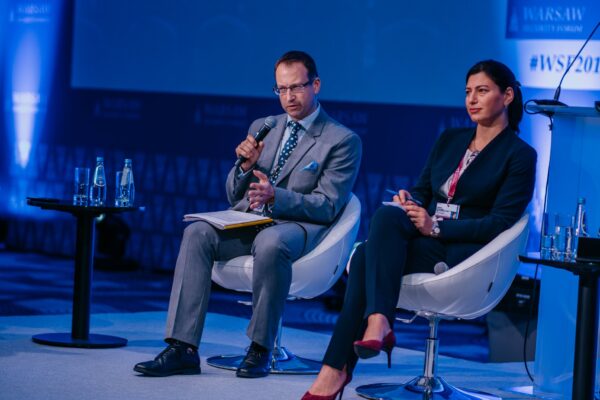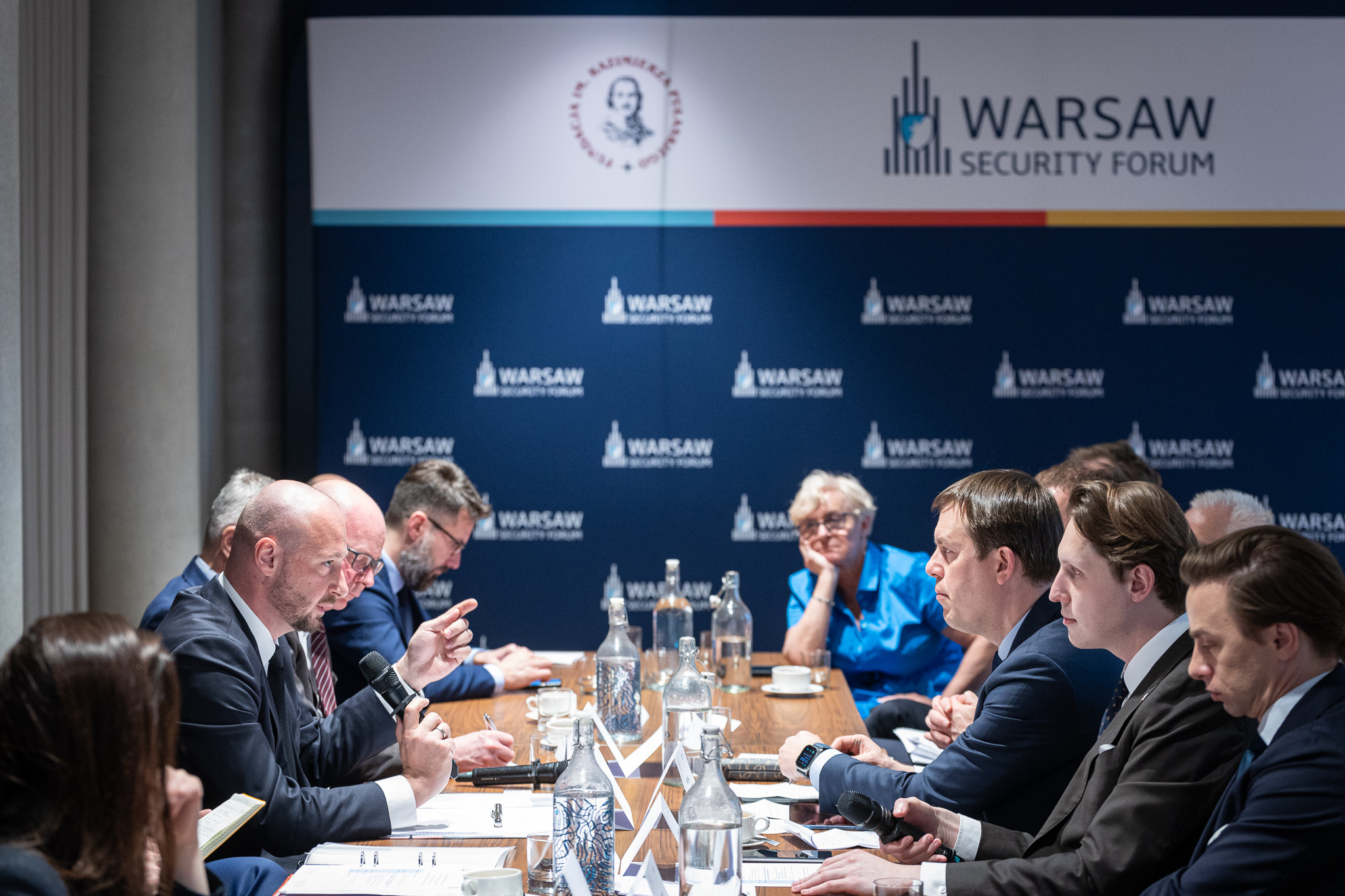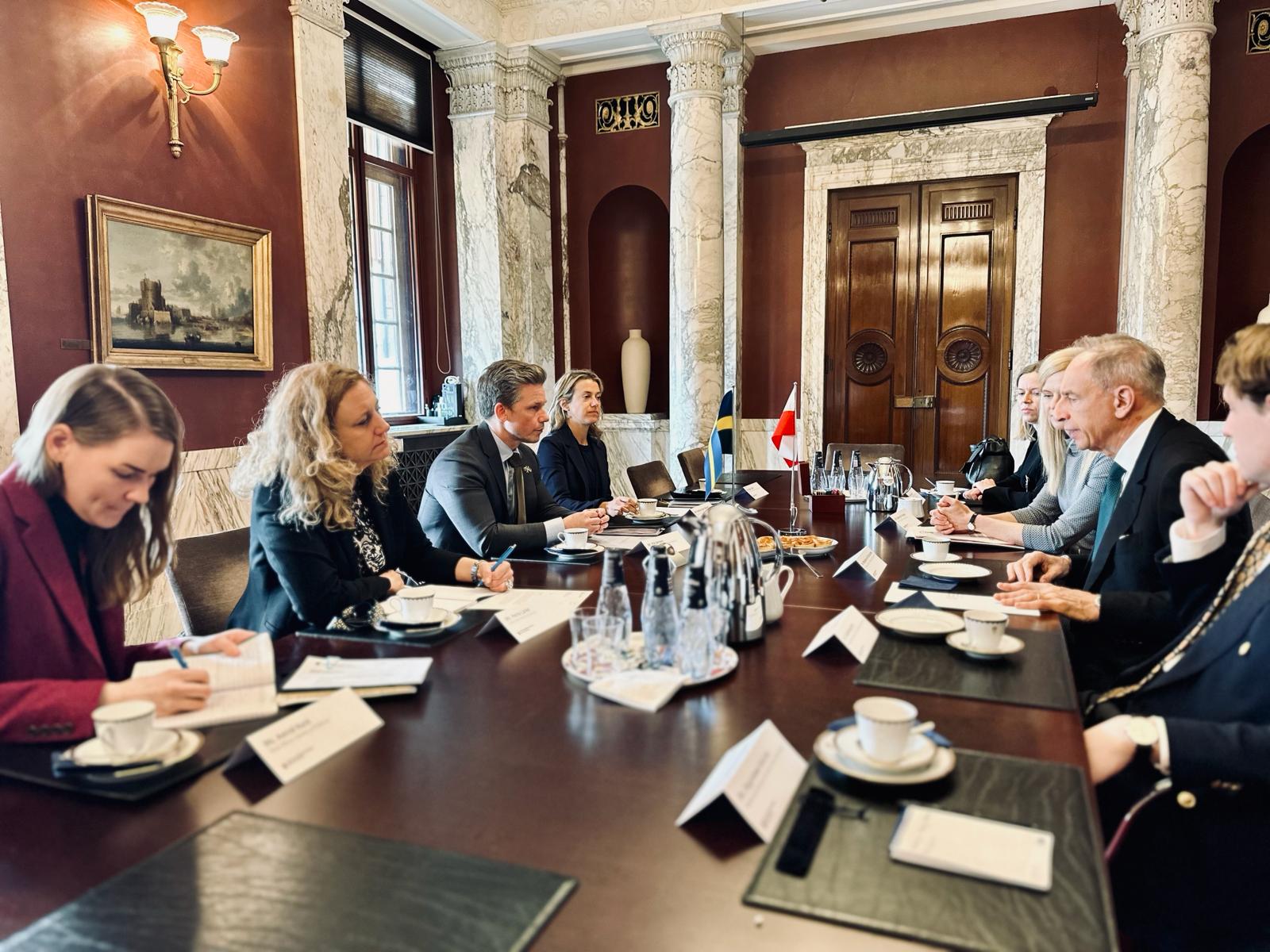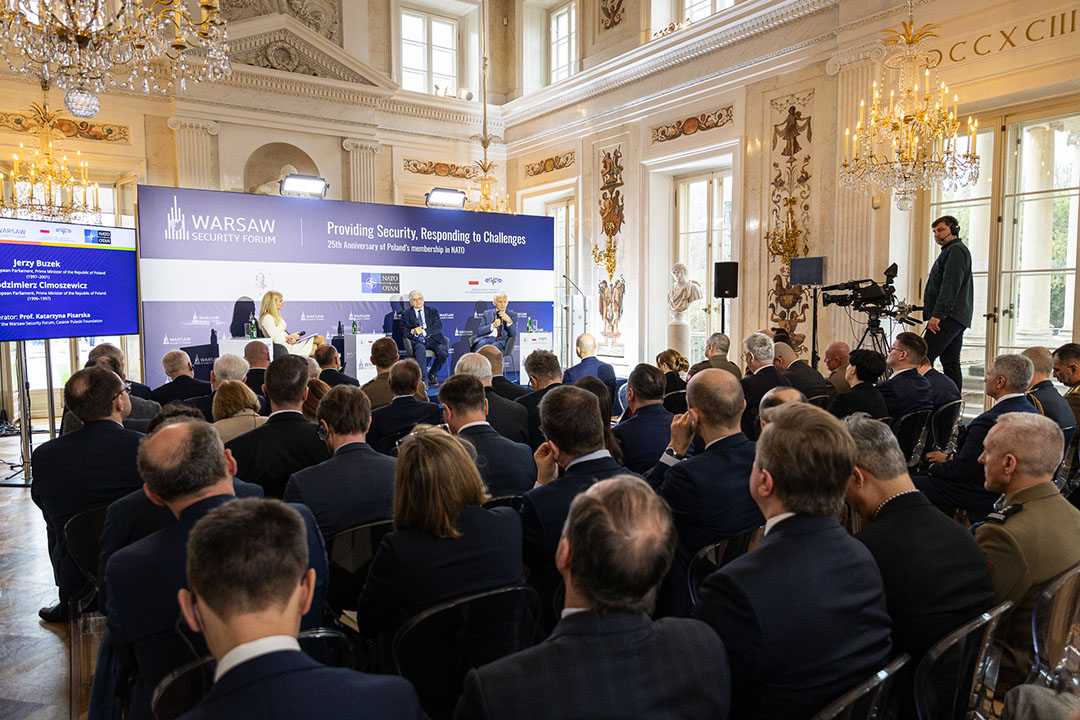WSF2019 | HIGH LEVEL SESSION: The Eastern Partnership at 10
The panel discussion “The Eastern Partnership at 10” aimed, on one hand, to look at the achievements and difficulties of The Eastern Partnership thus far, and, on the other hand, to identify the hopes and goals for its next 10 years and beyond. The panel was financed by the International Visegrad Fund, whose mission is to promote ideas for sustainable regional cooperation in Central Europe.
The participating panelists were: Sophie Katsarava – Chairperson, Committee on Foreign Affairs, Parliament (Georgia); Oleg Kravchenko – Deputy Minister of Foreign Affairs (Belarus); Anna Westerholm – Ambassador for the Eastern Partnership, Ministry for Foreign Affairs (Sweden); Jan Hofmokl – Director at Eastern Division, Ministry of Foreign Affairs of the Republic of Poland. The discussion was moderated by Terry Martin – Senior News Anchor, Deutsche Welle TV (Germany).
The session began with a review of the original goals of the Eastern Partnership. Jan Hofmokl and Anna Westerholm agreed that the main purpose of The Eastern Partnership is to build closer relations with Europe’s direct neighbors to the East and to create a space for them to discuss strategic issues with the European Union on their way to potentially becoming EU members. Later, Jan Homfokl compared The Eastern Partnership to an umbrella that allows everybody to talk freely, though, ultimately, each country maintains its own bilateral relations with the EU.
Assessing the benefits of this partnership for Georgia, Sophia Katsarova highlighted the country’s increased visibility among EU members, and said that Georgia has utilized the partnership to implement a series of democratic and economic reforms with the goal of someday becoming an EU member. Later she added that two major challenges facing Georgia right now are: security and trade and the economy.
For Belarus, The Eastern Partnership has been the only valuable instrument of communication with the EU, according to Oleg Kravchenko. The relative lack of accomplishments in the Belarus-EU relationship is, in Oleg’s view, explained by the fact that Belarus started from further behind, and progress requires patience. Belarus is not advocating for pragmatism at the expense of principles, though Oleg admits that economic ties and pragmatism are important. He continued: “I believe it is important not only to Belarus, but to eastern partners and EU member states to show [their citizens] that The Eastern Partnership is not a made-up format, a bureaucratic invention to fill in some blanks when reporting that we try to do something. We have to show to the people that there are some visible [benefits for them].” When answering questions from audience, he said that there is no conflict of interest in being a member of the Eurasian Economic Union and signing a contractual framework agreement with the EU, and Belarus is looking forward to starting negotiations with the EU on partnership and cooperation agreements.
Anna Westerholm stated that the most significant benefit of the Partnership to EU member states is the change in perception regarding their eastern neighbours. Instead of looking at them through the prism of their past, work is now being done on an agenda based on EU standards. Anna believes that the factors holding back the progress of the Partnership are: rule of law, democratic development, human rights, inclusion of civil society, lack of institutional capacity, political will and corruption.
Answering an audience question about engaging with Russia through The Eastern Partnership, Jan Hofmokl recalled that Russia was invited to the Partnership by German and Polish ministers during a trip to Moscow. However, at that time, Minister Lavrov declined the offer, saying that Russia is special and has a more strategic relationship with the EU. Anna Westerholm added that it is still possible to cooperate with Russia on concrete projects, such as cross-border initiatives, on a case-by-case basis.
SHARE THIS STORY ANYWHERE YOU LIKE
SHARE THIS STORY ANYWHERE
Poland-Sweden Strategic Dialogue
The Head of the National Security Bureau and the Swedish National Security Adviser met in Warsaw: Poland-Sweden Strategic Dialogue Highlights Shared Commitment to Regional Security.
High-level delegation to Stockholm
Last week Warsaw Security Forum organized a high-level delegation to Stockholm, to hold ministerial-level meetings. Their aim was to discuss the security situation in the region and the preparations for this year's edition of the #WSF2024.
25th Anniversary of Poland’s membership in NATO: Conference summary
The Casimir Pulaski Foundation, the organizer of the Warsaw Security Forum, and the Delegation of the Sejm and Senate of the Republic of Poland to the NATO Parliamentary Assembly, in cooperation with NATO, are organizing a celebration of the 25th anniversary of Poland’s accession to the North Atlantic Treaty Organization. The event is scheduled to take place on March 18th, 2024, in Warsaw.



